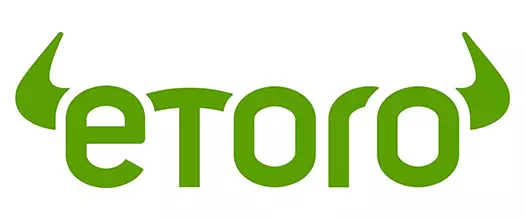- Jump to:
- Main features of the best Japan Forex brokers
- Forex Legislation
- Financial Regulators
- Payment Methods
- Trading Software
- Mobile Trading
- FAQ
Our team of expert traders has tested many regulated and trustworthy Forex brokers that accept traders from Japan and has compiled a top list of the best among them. Each broker operating in Japan received a quality score based on several factors, including its Trustpilot rating, regulation, fees and commissions, available trading platforms, customer service, and more.
 Plus500 USThis content applies only to Plus500 US and clients from the United States. Trading futures involves the risk of loss.
Plus500 USThis content applies only to Plus500 US and clients from the United States. Trading futures involves the risk of loss. eToro61% of retail investor accounts lose money
eToro61% of retail investor accounts lose money AxiThe vast majority of retail client accounts lose money
AxiThe vast majority of retail client accounts lose money XM Group72.82% of retail investor accounts lose money
XM Group72.82% of retail investor accounts lose money FBS72.12% of retail investor accounts lose money
FBS72.12% of retail investor accounts lose money IG67% of retail client accounts lose money when trading CFDs with this investment provider.
IG67% of retail client accounts lose money when trading CFDs with this investment provider.
Below you can find a comprehensive comparison table of Forex brokers for traders in Japan. We rank them based on several factors including regulation, spreads and commissions, Trustpilot rating, trading instruments, trading platforms, and deposit and withdrawal methods.
Our team has thoroughly evaluated all brokers listed below using TradingPedia’s exclusive methodology.
Main features of the best Japanese Forex brokers
- Brand
- Trading platforms
- Minimum deposit
- Regulations
- Trading instruments
- Spreads
- Leverage for Forex CFDs
- Leverage for Crypto CFDs
- Leverage for Indices CFDs
- Deposit methods
- Withdrawal Methods
- Commission per Lot
- Contact details
Located in East Asia, Japan is one of the world’s largest financial centres, with a thriving economy and a gross domestic product of US$5.51 trillion in 2019. The country is remarkable for its impressive rate of economic growth, driven by its aggressive export-trading policies. Its free-market economy largely relies on the manufacturing and service sectors.
Japan is among the biggest exporters of steel, consumer electronics, and automobiles, but it lacks natural resources such as fossil fuels and minerals. Arable land is scarce, which causes the country to depend on imports for most of its food needs.
The Land of the Rising Sun, as the country is frequently called, is also home to the Tokyo Stock Exchange (TSE), whose operations date as far back as 1878. The TSE merged with the Osaka Stock Exchange at the beginning of 2013, creating one of the biggest stock exchanges in the world based on market capitalisation.
The most important stock market index on the TSE is the Nikkei Stock Average (established in 1950). The latter is also known as the Nikkei 225 because it measures the performance of 225 of the largest publicly owned companies in the country across various sectors such as retail, banking, securities, machinery, insurance, communications, mining, and manufacturing. Nikon, Yamaha, Toyota, Sony, Fuji, and Mitsubishi are among the biggest Japanese companies whose stocks are included in this index.
Japan’s capital, Tokyo, is one of the largest hubs for foreign exchange trading, along with New York, London, Shanghai, Hong Kong, Zürich, Frankfurt, and Chicago. The country uses the Japanese yen (JPY, ¥), which is among the most traded currencies in the world together with the USD, EUR, GBP, AUD, CAD, and CHF.
As of April 2019, the JPY accounted for approximately 17% of the global Forex market turnover, ranking in third place for the period, surpassed only by the EUR and the USD. The yen’s supply is controlled by the country’s central banking institution, the Bank of Japan.
The Forex sector is well-regulated in Japan and falls under the oversight of the Japanese Financial Services Agency (JFSA). Japanese-licensed brokerages are considered some of the safest to trade with due to the strict regulatory regime in the country.
Japanese Forex legislation
The country’s financial watchdog, the JFSA, does its best to restrict local traders from investing with brokers licensed in other jurisdictions. This is among the main reasons why many foreign trading companies looking to penetrate this thriving Forex market decide to set up offices in the Land of the Rising Sun. However, before they can do that, they must receive authorisation from the local financial regulator.
Many of the rules outlined by the JFSA were influenced by the events of January 2015, when the Swiss National Bank (SNB) unexpectedly decided to scrap the peg for the EUR/CHF pair, provoking panic and chaos on the global financial market.
As a result of the rapid jump in the value of the CHF, many brokerages went out of business overnight and were unable to return their customers’ money. The balances of traders worldwide fell severely into negative territory due to the huge leverage offered for some products (up to an impressive 1:500 in some cases). Many people were afraid their brokerages would insist that they restore the money so they could cover the massive losses.
These events caused financial regulators worldwide, including the Japanese one, to introduce restrictions on the maximum leverage retail customers can use. Many adopted negative balance protection policies to prevent retail traders from losing more than they have in their accounts. Unfortunately, Japan is yet to introduce negative balance protection for local retail customers.
Locally authorised brokerage companies must comply with certain leverage restrictions. Leverage in Japan was reduced on two occasions. The first change occurred shortly after the Great Financial Crisis of 2008, when the JFSA decided to cut the maximum leverage threshold to 1:50.
The financial regulator then decided to make further reductions in this respect to help mitigate the volatility associated with currency swings. Leverage was further reduced to 1:25, which is the lowest such ratio in the entire world.
All locally regulated brokers must comply with this reduction when servicing Japanese retail customers who trade the Forex markets with margin. The only entity that is exempt from the limitations is the Tokyo Financial Exchange (TFX), where futures are traded, the reason being it does not deal in over-the-counter (OTC) products.
In 2017, the Japanese regulator considered another attempt at the local Forex industry and announced plans to further reduce the cap on leverage from 1:25 to 1:10. However, these plans were ditched in May the following year due to vehement opposition from traders and Forex trading operators alike.
Nevertheless, locally licensed brokers that offer margin trading are expected to undergo stress tests to make sure they have sufficient capital to withstand unexpected price movements like those that happened in 2015.
Forex traders who use leverage have nothing to worry about for the time being, but the same cannot be said about those who trade cryptocurrencies on margin. In January 2020, the JFSA proposed a new measure that aims at cutting the leverage cap for cryptocurrency margin trading from the current rate of 1:4 to 1:2. The regulator plans to enforce the measure in April of the same year.
Japanese financial regulators
The Forex trading sector in Japan falls under the vigilant regulation of the Financial Services Agency (JFSA). This strict watchdog was established in the early 2000s and reports directly to the Japanese Ministry of Finance.
The headquarters of the JFSA is located in the country’s capital, Tokyo, one of the largest foreign exchange trading hubs in the world and the home of the Tokyo Stock Exchange, or Tōshō. The JFSA is tasked with several major responsibilities relating to the Japanese financial sector.
Among those are issuing licences to commercial banks based in the country, Forex brokerages, and insurance companies; ensuring a healthy national economy; protecting investors’ interests; and controlling Japan’s securities markets.
The watchdog performs regular audits on the financial companies it oversees and closely monitors their activities. It handles complaints on behalf of investors and actively partakes in their resolution. Locally authorised financial companies that fail to comply with the regulator’s requirements are penalised. In some instances, violating brokerage firms even have their accounts blocked by the JFSA.
The Japanese regulatory body is modelled on Great Britain’s governing regulator, the Financial Conduct Authority (FCA). All Forex brokerages looking to conduct trading activities in the country must apply for licences from the JFSA and supply all the necessary documents for verification.
The regulator prohibits its licensees from offering scalping and hedging to local customers. Japanese traders are also restricted from claiming welcome bonuses. This, along with the low cap on maximum leverage, is among the main reasons why some local Forex traders seek the services of offshore-licensed brokerages.
Japanese Forex payment methods
All Japanese brokers give local customers the option to practise with demo accounts. We believe this is the best course of action for Japanese traders who are just wading into the vast world of Forex trading.
Another benefit of opening a demo account is that it enables you to test new trading strategies without exposing any real money to risk. This way, you can also test the platform of the brokerage to determine whether it appeals to you or not.
Those who already have significant experience would probably want to skip the demo and open live accounts so they can make real-money investments on the Forex markets. Luckily, Japan-friendly brokerages work with a range of globally and locally available methods Japanese customers can use to fund their real-money balance.
The debit/credit card remains the leading payment method in the country and accounts for around 71% of all transactions. Local banks issued an impressive 278 million credit cards in 2017.
The good news is brokers commonly accept payments with Maestro, Visa, and Mastercard, although some also support cards issued by the local brand JCB. This company has more than 82 million cardholders across 190 countries worldwide. American Express is another option, albeit a less popular one.
Many brokers with a strong presence on the Asian market provide the option to deposit with cards by the Chinese company UnionPay. You can apply for UnionPay cards at the Japanese Mitsui Sumitomo Bank, which has received authorisation to issue them.
The other broadly available payment options are bank transfer and e-wallets. The former can hardly be described as time-efficient since deposits take a couple of business days. Waiting times for withdrawals via standard bank transfers are even longer, at around three to five business days.
Many traders from Japan prefer to use e-wallets because they allow for faster and more anonymous transactions. Neteller, PayPal, and ecoPayz are among the most common e-wallet options. Skrill is unavailable in Japan. The UK-based payment services provider decided to exit the Japanese market in October 2016.
Popular trading software in Japan
Since the Japanese government does everything within its means to prevent local traders from accessing unauthorised foreign brokers, most licensed Forex companies choose to develop their platforms in-house.
This is due to the fact that many turnkey trading platforms developed in foreign jurisdictions do not cover the requirements laid out by the JFSA. Of course, each proprietary platform has its own peculiarities in terms of features. You should test such platforms in demo mode to get a good feel for how they function.
Still, many brokers that service the Japanese Forex market continue to use third-party software, with the most broadly available option being MetaQuotes’ MetaTrader 4 (MT4). This platform is geared towards the needs of Forex traders in particular.
It appeals to traders worldwide because of its easy-to-use layout. There are numerous handy functionalities that allow for in-depth analysis of discernible market trends, including 30 technical indicators.
Seasoned traders from Japan who want to diversify their portfolios often have the chance to install the more advanced version of this software, MetaTrader 5 (MT5). It enables them to trade futures, bonds, options, and stocks in addition to spot Forex.
This version is also richer in terms of features and analysis tools. It has 21 timeframes, 38 indicators, and over 40 graphical objects plus three types of charts – candlesticks, bars, and lines. Both MetaQuotes platforms have dedicated mobile applications, available in the Japanese language.
A few Japan-friendly brokers use the less popular platform ActTrader. This feature-rich desktop software was designed by a development company called ActForex in the proprietary language ActFX. The software is fully customisable.
One of its biggest claims to fame is that it allows traders to pull price data into other programmes such as Microsoft Excel. The other useful features of ActTrader include automated and single-click trading, mobile compatibility, and tools for advanced trading analysis.
Mobile trading in Japan
Japan has a very well-developed technology sector, so it only makes sense portable devices have become ubiquitous in the Land of the Rising Sun. There is a rich mobile-phone culture in the country where such devices are called ‘keitai denwa’ by the locals.
The number of smartphone users in the country was quite impressive at 72.5 million in 2019, but it is expected to rise even further in the years to follow. Forecasts suggest that as many as 76.3 million Japanese people will own a smartphone by 2022.
The Japanese use their mobile devices for all kinds of activities, from gaming and browsing to making purchases and, of course, trading on the foreign exchange markets. We previously mentioned that most trading platforms are fully compatible with portable devices. You will experience no difficulties in finding a reliable Forex app if you live in Japan.
The MetaQuotes platforms MT4 and MT5 are most broadly used for trading on the fly. You can get them at no cost either from the App Store or Google Play, depending on what type of portable device you own.
Having said that, many reputable Forex brokers that operate on the Japanese market have designed their own native applications, with performance and features varying between different apps.
Using one such app is a great idea if you want non-stop access to the latest market prices. You will have real-time quotes at a glance so you can react and take advantage of favourable price movements.
The apps are usually available in Japanese as well, so language is not a barrier. Apart from trading, most of them are equipped with extra tools for market analysis, charts, and educational materials.








